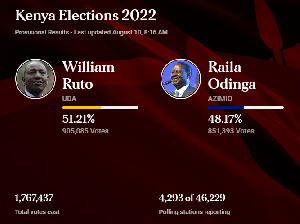Interesting facts about 8 of the oldest trees in Africa

Africa is home to some of the oldest trees in the world, notably baobabs. This particular tree species on the continent is extremely large and predominant within Savannah regions. Aside from longevity, they are also among the largest and tallest trees in the world. Baobabs initially grow with one stem at the early stage and gradually develop multiple stems and segments over the years.
The large span of their branches offers enough shade for community gatherings in many African communities. Today, these trees, located in different parts of Africa, form part of the tourism components of the continent.
The largest and oldest trees in Africa, which are mostly baobabs, are in the Southern region of the continent, predominantly in Zimbabwe, South Africa, and Namibia. Most of these trees, if not all, are over ten centuries old. The previous oldest tree in Africa, known as Grootboom, grew in Namibia and died in 2005, paving way for the current champion – Dorsland Baobab, also located in Namibia.
One interesting fact about these trees is how they have outlived several generations and are currently far older than the entire living human race presently on earth.
Dorsland Baobab (Namibia)

Age: 2,100
The Dorsland Baobab stands in the south of the Khardum National Park in Namibia. It is the oldest tree in Africa, with 47ft (14.3m) in height and more than 98ft (29.9m) in circumference. In 1883, the Dorsland trekkers camped near the tree and carved the year 1883 on the tree trunk. Again, in 1891, a few German soldiers carved the year “1891” on the tree trunk when they passed by its location.
Livingstone Tree (Zimbabwe)

Age: 1,973
Livingstone Tree was named after David Livingstone, a Scottish physician, explorer, and pioneer Christian missionary. It is believed that David preached under this massive tree, and he carved his name on the tree, which is why the tree is known as the Livingstone Tree today.
Glencoe Baobab (South Africa)

Age: 1,845
Glencoe Baobab is the second largest baobab tree and the oldest tree in South Africa, located on Glencoe Farm, near Hoedspruit in Limpopo Province. The tree split in 2009 and 2017, creating several trunks and an enormous hollow. Its earlier measurement before the split was 52ft (15.8m) trunk diameter, 154ft (46.9m) circumference, 56ft (17m) height, and 121.6ft (37.1m) crown spread.
Humani Bedford Old Baobab (Zimbabwe)

Age: 1.573
This tree stands in the Savé Valley Conservancy at Humani Ranch in the Bedford Block. The generally noted age of the Humani Bedford Old Baobab is 1,573, but radiocarbon dating done by a few scientists suggested that the tree is around 1,800 years old. The girth is about 77.6ft (23.65m), with a height of 59.7ft (18.20m).
Sagole Baobab (South Africa

Age: 1,213
Sagole Baobab is the largest baobab and the second oldest tree in South Africa, located east of Tshipise, Vendaland, in Limpopo Province. The tree has a diameter of 34.3ft (10.47m), a circumference of 107.9ft (32.8m), a height of 72.1ft (22m), and a crown diameter of 125.3ft (38.2m. Sagole Baobab is the third stoutest tree in South Africa after Glencoe and Sunland Baobabs and takes about twenty people, joined with out-stretched hands, to fully encircle it. Some parts of the tree collapsed in 2009 and 2016.
Mokore Giant Baobab (Zimbabwe)

Age: 1,098
Mokore is close to the Mokore Ranch in the Savé Valley Conservancy in the Chiredzi District of Masvingo, Zimbabwe. The girth is around 92.2ft (28.11m), and the height is about 76.1ft (23.2m).
Chishakwe Big Tree (Zimbabwe)

Age: 1,092
Chishakwe Big Tree is another baobab located north of Chishakwe Ranch, in the Savé Valley Conservancy, in Masvingo, Zimbabwe. It has a girth of 87.1ft (26.56m) and a height of 85.6ft (26.1m).
Sunland Baobab (South Africa)

Age: 1,060
Sunland Baobab is one of the most prominent trees in Africa due to its exclusive tourism features. It is on the Sunland Farm near Modjadjiskloof, in the Limpopo Province of South Africa. A third of the tree collapsed in 2016, and another collapsed and split in 2017. Carbon analysis inside the hollows indicated fires in 1650 AD, 1750 – 1780, 1900, 1955, and 1990.
In 1993 the internal hollows were cleared of compost; a door, bar, railway sleeper pub, draft beer, seats, music system, and a wine cellar were later built inside the main hollow trunk. Its hollow trunk served as a party center for visitors and partygoers who celebrate in the ambiance of a natural environment. The main hollow is so large that it can contain up to sixty persons at once. However, the event center was closed in 2017 after the tree split into two.
Source: face2faceafrica.com





